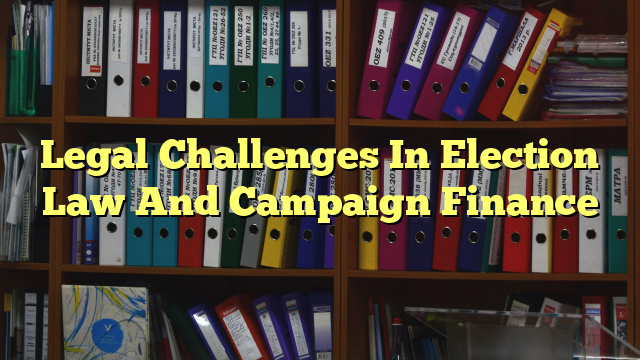Table of Contents
- Limitations on Campaign Spending
- Major Campaign Finance Laws Concerning Presidential Elections
- The Federal Election Campaign Act
- The Federal Election Commission
Limitations on Campaign Spending
Campaign spending has several legal limitations. In the United States, the federal government has set limits on individual and political committee contributions to candidates and political parties. Federal law also prohibits corporate and labor union contributions to political candidates and parties. Additionally, the Federal Election Commission (FEC) regulates the amount of spending candidates and political parties can use for political advertising and other activities.
At the state level, campaign finance laws vary greatly. Some states have passed laws that place restrictions on how much money candidates can accept from individuals, political committees, and corporations. Other states have placed limits on how much money candidates can spend during their campaigns.
Major Campaign Finance Laws Concerning Presidential Elections
In 1971, Congress passed the Federal Election Campaign Act (FECA). This law established the Federal Election Commission (FEC), as well as a system of campaign finance disclosure. Under FECA, presidential candidates must disclose the sources of their campaign funds. Additionally, FECA placed limits on individual contributions to presidential candidates and political parties.
In 2002, Congress passed the Bipartisan Campaign Reform Act (BCRA). This law placed a new set of restrictions on campaign finance. The BCRA banned soft money contributions to political parties and prohibited corporations and labor unions from making direct contributions to political candidates.
The Federal Election Campaign Act
The Federal Election Campaign Act (FECA) is a federal law that governs the financing of federal elections in the United States. FECA requires political committees to disclose their contributions and expenditures to the Federal Election Commission (FEC). FECA also requires presidential candidates to disclose their campaign finances. Additionally, FECA places limits on individual contributions to presidential candidates and political parties.
The Federal Election Commission
The Federal Election Commission (FEC) is an independent agency of the United States government that was established by the Federal Election Campaign Act of 1971. The FEC is responsible for enforcing the provisions of FECA and other federal campaign finance laws. The FEC also administers the public disclosure of campaign finances and oversees the administration of federal election campaigns. The FEC is composed of six commissioners who are appointed by the President and confirmed by the Senate.


Campaign finance laws can present legal challenges, especially during election cycles. Financing requirements, reporting rules, and donation limits are important for ensuring fair elections. However, they can also be confusing and complex.